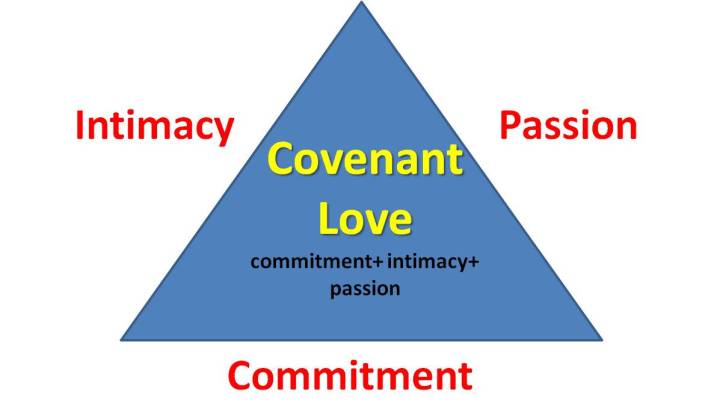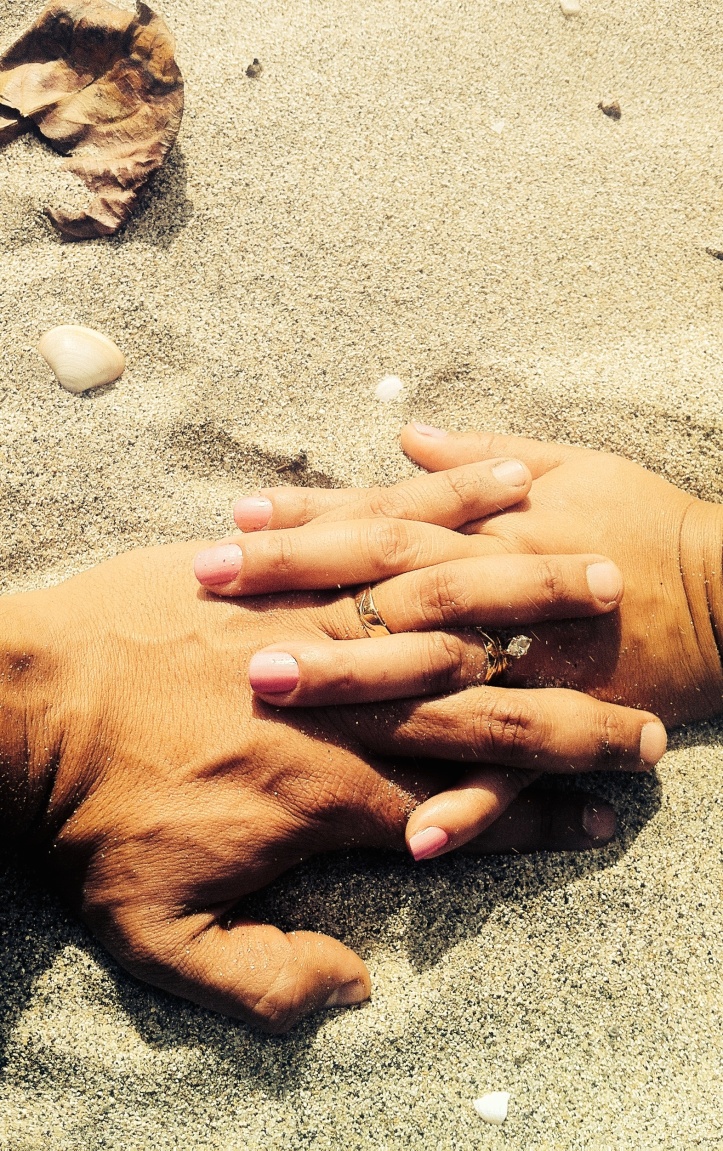
Every human desires to be loved well and in a lasting way.
(Part 2 of 2) The science of love is booming, and articles fill every kind of magazine on supermarket shelves. Over and over again, researchers agree that both men and women need intimate loving relationships, for it is the normal condition of the human race. Sociologist Dr. Elaine Storkey writes,
In all the debate on the changing climate of intimacy in society one point seems to remain clear. It is that the needs for human intimacy continue…Within every society, enshrined within rituals and protocols, customs and folklore our need for healthy love persists.
This would help explain why researchers find that people of all ages are significantly healthier and happier when they are in a good, safe relationship. We may enjoy alone time, but almost everyone hates to feel loneliness. We are a social species. Babies cry to be held, children hide in their mother’s legs, teenagers look for an accepting peer group, and adults search for best-friends or a mate. Psychologist John Townsend offers this simple conclusion:
We begin life in a terrified and disconnected state. Disconnectedness is the most destructive result of sin’s entrance into the universe. It is the deepest and most fundamental problem we can experience…The problem: our need for attachment. The solution: find intimate relationships.
Much of our life is spent seeking, developing, and trying to improve our loving relationships. After thousands of counseling meetings with couples, I find I use some tools often because they are the most effective at healing unfulfilling relationships. Inevitably, I go to the Triangle Theory of Love. This theory, developed by renown psychologist Dr. Robert Sternberg, is simple to understand, yet clearly sheds light on why some interpersonal relationships are healthy and others are not. It shows why some relationships last and others do not. I explain this model, and the picture below, more fully in the first part, Three Keys to Making Love Last.

Sternberg’s research found that interpersonal love was made up of three parts: Commitment, Intimacy, and Passion. A triangle was used as a metaphor for describing this relationship. Sternberg determined that all parts were necessary for love in lasting, healthy and fulfilling relationships. Relationships which failed or were unhealthy had one factor or two factors in minimal levels. He concluded that the presence or absence in these components, and their inter-relatedness, produced seven possible types of loving relationships. Commitment speaks to the decision a person makes to love someone for the long haul. Intimacy speaks to our desire to know another person deeply, and be known and accepted by them. Passion speaks of our desire to be with a person, to hold them and intensely interact with them.
Let’s look at the possibilities in how these dimensions appear in a relationship. Seven mixed-possibilities can occur, with one, two or three parts of love involved. Let’s look at them.
ONE TRACK KINDS OF LOVE
Infatuated Love (Passion only): Built primarily on passion (intense and desire-driven), this is often called lust or hedonistic love. With little commitment, it has a very short shelf-life (eg: “one night stand” vernacular) and invests very little in knowing the other person or being known. We see this in movies and TV where the scene of the rumbled bed on the morning after has the characters searching for each others’ name. Duh. Don’t pin your hopes on this kind of love for fulfillment and security.
Empty Love (Commitment only): Sometimes relationships are based solely on a sense of commitment. Without much passion or intimacy, couples stay together not because they are drawn to each other, or desire each other, or even understand each other. This empty love has people staying because it is easier or better, or because the cost of leaving seems too great. Empty love births phrases like “my kids need a dad” or “its cheaper to stay in one place” or “I’m not sure what else to do.” Sadly, these relationship tend to last too long.
Quick Friendship Love (Intimacy only): This love has little commitment or passion, but a high level of intimacy. It is short-lived and cathartic in nature. It comes with a weekend of pouring your heart out to a new friend, or a time confessing fears to another you may never see again, or having an honest talk with someone you trust (a doctor, a school counselor) but will never have a “real life” relationship with.
All of these three “one track” loves contain an air of desperation in them. The are held in a container called “love”, perhaps, but they show little mutuality or heart connection. They seldom meet the real needs for human connection that men and women pine for so strongly. Often they are selfish ( I just needed someone, anyone…) or fear-based (This is the best I can do…). As therapists, we see this kind of love in people who are at extremes on the relationship scale, either drifting or stuck, but not really growing or investing in their emotional lives. Wrapped in insecurity, a shallowness vainly tries to suffice for real love. If you find these describe your relationship, you need to make some big changes, or get some professional help.
TWO DIMENSIONAL KINDS OF LOVE
Immature Love (Passion + Commitment without Intimacy): These relationships are  filled with passion and overflowing with commitment, but have little sense of intimacy. These couples do not really know each other at all, nor do they understand what long-term love requires requires. We sometimes call this puppy love. It’s easy to picture the texting: (emoji heart) I love you so much and I will never leave you and we will be together forever and when can I see you? When? (emoji heart)(emoji heart)(emoji face with heart eyes). Real love takes both life experience and time together to develop. We learn about people as we interact and spend time with them in different seasons and environments. Enduring, deep love requires that we know someone, and that they know us.
filled with passion and overflowing with commitment, but have little sense of intimacy. These couples do not really know each other at all, nor do they understand what long-term love requires requires. We sometimes call this puppy love. It’s easy to picture the texting: (emoji heart) I love you so much and I will never leave you and we will be together forever and when can I see you? When? (emoji heart)(emoji heart)(emoji face with heart eyes). Real love takes both life experience and time together to develop. We learn about people as we interact and spend time with them in different seasons and environments. Enduring, deep love requires that we know someone, and that they know us.
To improve: A counseling rule of thumb: “love at first sight” or “soul mate” relationships in which couples “fall fast and deep” are most often fueled by a person’s pathology, history, or unhealth. They seldom work for long, and can leave a trail of blood. They tend to grow cold or fade. One suggestion: don’t seek these kind of intensity relationships. Think about someone with whom you could build a long-term partnership. But if you find yourself here and want the relationship to work, you need to hang in there. Time together is key. As is communication. Hang out together, and talk about your dreams and your fears and your hopes. Ask questions of your partner. And then listen deeply. Do things together. Experience life together. and be patient.
Companionate Love (Intimacy + Commitment without Passion): This type of love shows high levels of intimacy and commitment, but little passion. Perhaps a couple has been together for a long time and have no desire or intention to separate. They know the habits and ways of the other, and have settled into a replicating pattern of days and nights. But there is great distance between their hearts. They move like two railroad tracks, in the same direction but never touching. They usually care for the other (I want the best for him/her) but don’t care to spend quality time with each other (We have our own lives). Separate TVs, separate friends, separate bedrooms bloom.
To improve: Relationships in which little effort has been applied often devolve into companionate love. These kind of relationships need to be shaken up. Endurance is not enough. Someone needs to start with honesty, “This is not enough of a relationship for me. I love you, but I need to feel more love for you. And I would like more passion from you.” Often, I ask (make) couples spend time together, and date each other, including sitting next to each other and holding hands. Lie in bed and just cuddle for thirty minutes. Really. Maybe go on vacation, where the only goal is to be together a lot. Change the patterns. Rediscover each other.
Romantic Love (Passion + Intimacy without Commitment): This love demonstrates a great deal of passion and significant intimacy. The relational investment is intense and deep, most often at both a physical and an emotional level. We desire each other and we both know what we like. These couples talk and learn about each other, and hold hands as they gaze into each others’ eyes. But there is no real commitment, or any sense that the relationship will last very long. Unspoken or spoken, the sense is that other better options may appear. I may change how I feel. We may grow apart. These relationships have no sense of promise or security, but only a sense of the here and now. Couples live together, or regularly sleep over, to see what happens or if they are compatible. Romantic relationships can be tender and intense, and are our culture’s media favorites, but in real life they often reflect a deep sense of prior hurt or deep fear in one or both persons. I won’t live like my parents did. Or, I won’t be hurt like that again. Or, I won’t get stuck. Period.
Unfortunately, study after study show that emotional safety–a requirement for growth–requires a sense of duration and mutual commitment. In our culture, a wedding has been the normal way to voice that commitment.Studies show that people who live together before marriage have a higher divorce rate if they ever marry, probably because of reductions or hesitations in the way they commit. The inner dialogue can be tough: How much can I pour into this, if I’m not sure she’ll be here next month? When is our lease up, again? Why aren’t I enough for him? Is it any wonder people desire more for their loving relationships?
To improve: Since romantic, “right now” love is the rage, we need to be honest with ourselves. Are WE willing to hang in there? Are WE willing to sacrifice some things in order for the relationship to endure? Do WE want this to last? I ask couples who find themselves here to do an honest assessment–and then tell each other the truth. If you desire to make the relationship last, then you need to find ways to “come together for the long haul”. Like visiting each other’s families. Developing a joint list of goals. Sharing a bank account. Setting a wedding date. Perhaps it is time to sit down for a few hours with a relationship counselor. Commitment doesn’t just happen if we wait long enough. It must be deliberately sought, and consciously pursued.
THREE DIMENSIONAL LOVE
Some relationships do make it. They last, even when those around aren’t sure they will. Most often, these relationships have all three dimensions of love present. Commitment, Intimacy, and Passion–held together in some level of balance. Oh, not every day, perhaps. But most days. This is Covenant Love. When present, Covenant Love tends to offer both individuals in a relationship great measures of satisfaction, enrichment, tenderness, joy, and security. Covenant love tends to endure, as it fulfills much of what men and women require in deep relationships and marriages. It makes it through the hard seasons.And it adds joy to life far more often than raising burdens.
Covenant Love relationships deepen over time because all three parts–commitment, intimacy, and passion– are working together. For this to happen, people must find time for each other. This isn’t easy, but it is essential. Covenant love requires forethought and energy — you don’t just drift into it. And people in these relationships also work at expressing all three to each other.
What’s Covenant Love look like? Listen in…
Commitment:
“We’re in this together, Babe. Come hell or high water.You’re stuck with me.”
“If I had to do it over, I’d still choose you.”
“You bring so much to my life–I can’t imagine our kids being so amazing without us both in their lives.”
Intimacy:
“Thanks for listening to my download. I have so much going on, but I always want to talk to you. It really helps.”
“I was watching you work for a couple of minutes. I love the way you scrunch your mouth when you solve problems.”
“Come sit with me. Listen to this passage I’m reading, and tell me what you think.”
Passion:
“Hey, can you clear your afternoon today? I’ve been thinking of you all morning, and the trees are full of fall beauty. I’ll leave early, and let’s go for a drive.”
“I’ve asked a baby-sitter to come over Friday. There’s a new Italian restaurant I’d like to try. Open for a date, good-looking?”
“Sadly, we’ve only got an hour free. But I’d love to snuggle, you handsome dude. I need you. Open?”
So, how are you doing? Where are you weakest? Will your relationship make it?
